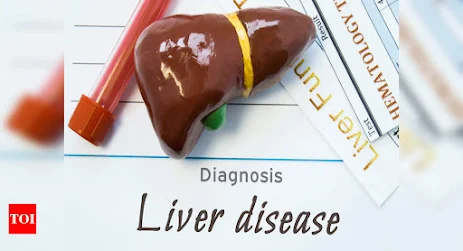Fatty liver diet: 8 foods to eat—and 8 to avoid
ALSO READ: Naturally Taking Care Of Your Body
How to manage fatty liver with a diet
To combat fatty liver disease, it’s essential to make strategic and lasting changes to your diet, rather than just avoiding or integrating random foods here and there. “The most important part of these changes is that they should be sustainable,” says Aymin Delgado-Borrego, MD, pediatric and young adult gastroenterologist and public health specialist at Kidz Medical Services in Florida. Generally, the best diet for fatty liver includes:
- Adequate fiber
- Lots of fruits, vegetables, and nuts
- Whole grains
- Very limited saturated fats from animal products
- Very limited salt and sugar
- No alcohol
The American Liver Foundation recommends restricting calorie intake and modeling your eating habits after the Mediterranean diet. Dr. Delgado-Borrego says half of any plate of food you are eating should be fruits and vegetables, one quarter should be protein, and the other quarter should be starches. You can always reference the foods to eat and avoid, or just remember these two main rules to improve fatty liver:
Avoid added sugars, processed meats, and refined grains.
“The best way to ensure significant resolution or even cure [fatty liver disease] is losing approximately 7%–10% of your body weight,” explains Sanaa Arastu, MD, a board-certified gastroenterologist with Austin Gastroenterology in Texas.
Experts recommend these foods in particular for a healthy liver:
SEE ALSO: How to clean your liver of toxins?
4. Foods rich in vitamin E, including red bell peppers, spinach, peanuts, and nuts: Dr. Delgado-Borrego recommends these types of foods, rich in vitamin E, as beneficial to people with fatty liver. While more studies are needed, one concludes that the vitamin shows modest improvement for people who have NAFLD or NASH.
Water: Experts recommended sticking to this beverage as much as possible over sugary and high-calorie alternatives. The average person, with no medical conditions that would limit fluid intake, should drink between a half ounce and an ounce of water for every pound of body weight daily to avoid dehydration and its negative effects on the liver.
4. Olive oil: Certain oils can provide healthy fats, such as olive oil and avocado oil. These help with feelings of satiety and reduce liver enzyme levels. Other types of oil that are high in monounsaturated fats include sesame, peanut, sunflower, canola, and safflower oil.
SEE ALSO: Lemon and Olive Oil for Fatty Liver
5. Flax and chia seeds: These are plant sources of omega-3 acids. Registered dietician Sandy Younan Brikho, MDA, RDN, recommends these acids for both nonalcoholic and alcohol.
6. Garlic: One study suggests that upping your garlic intake (specifically through garlic powder but other forms work, too) over a 15-week period led to decreased body fat mass in people with NAFLD and also reduced the fat in the liver and prevented progression of the disease.
7. Soy: Some evidence suggests that soy products, such as soy milk or tofu, may improve fatty liver. One study says that research has shown improvements in the metabolic effect in people with NAFLD.
8 foods to avoid with liver disease
The foods to avoid are typically those that can spike blood sugar levels, or lead to weight gain, such as:
1. Juice, soda, and sugary beverages: Dr. Delgado-Borrego tells her patients to avoid these as “the enemy of the liver are sugars and carbohydrates.”
Butter and ghee: These foods are higher in saturated fat, which Younan Brikho says has been associated with high triglycerides in the liver.
3. Sweet baked goods and desserts (cakes, pastries, pies, ice cream, cake, etc.): These types of sugary carbs are detrimental to success if you are trying to reverse fatty liver disease.
4. Bacon, sausage, cured meats, and fatty meats: These are high in saturated fats, and therefore not recommended by our experts.
6. Salty foods: Some research has suggested that NAFLD is worsened by salt consumption, for two reasons–it typically accompanies higher fat and higher calorie foods, such as some others on this list, and it also can result in dysregulation of the renin-angiotensin system, enhancing your risk of fatty liver.
Fried foods: Fried foods as well are often high in calories, negating expert advice to follow a more calorie-restricted diet.











